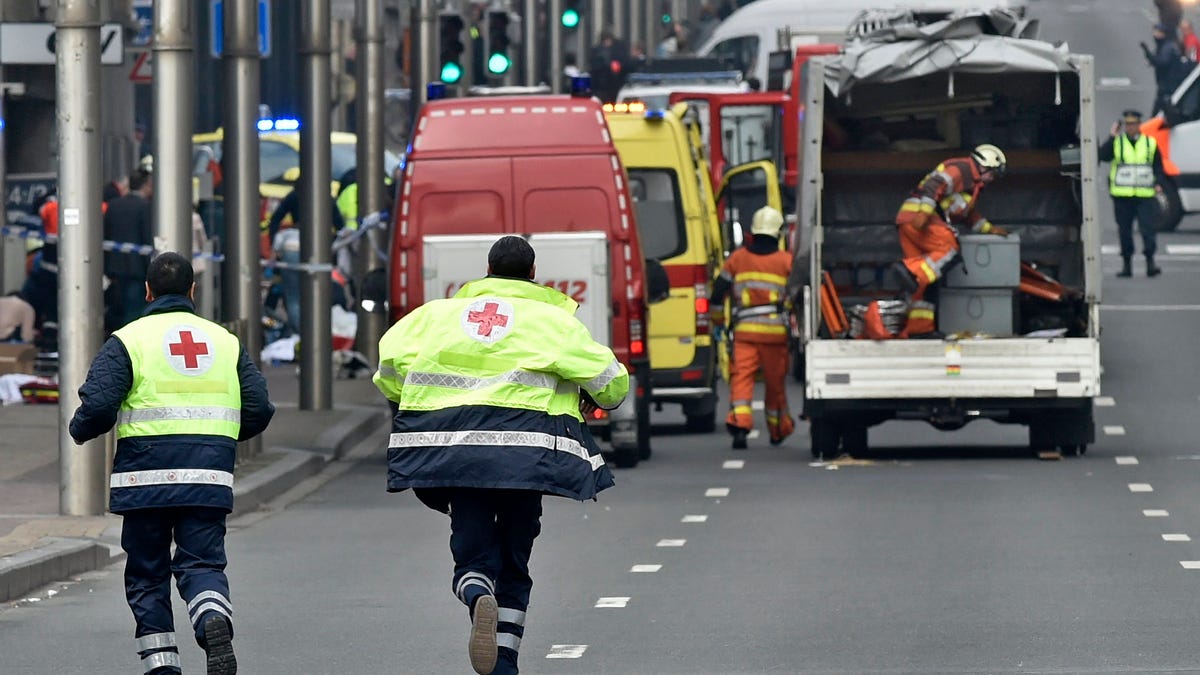Facebook activates Safety Check tool after Belgian bombings
The tool that helps people let others known they're fine is among the ways the Internet is central to the response to fatal explosions in Brussels.
Facebook activated its tool to help people stay in touch after fatal terrorist bombings struck the airport and subway in Brussels on Tuesday.
The social network tool, also used after November terrorist attacks in Paris, lets people tells their contacts that they're safe. It's one of the many ways the Internet has become an essential tool in responding to crises.
Like Facebook, the Red Cross offers an online tool where people can say they're safe or try to find others. However, it didn't appear that Google's Person Finder, a pioneering service for emergency responses, was active.
In the Belgian capital, the government turned to Twitter to inform the public of closures. The government's crisis center also urged people to use Internet communications after the telephone network was overwhelmed. Later, it added, "Belgian Crisis Center for people calling from outside of Belgium: +3278151771. Try reaching people through social media first."
Brussels shut its airport and public transit system after two explosions hit the Zaventem airport at about 8 a.m. local time Tuesday, according to the Belgian government's crisis center. Later in the morning, an explosion sent smoke up from Brussels' Maalbeek metro station, according to reports from the Guardian and Politico.
"There are many dead, many injured," Belgian Prime Minister Charles Michel said in a press conference after the attacks, according to the Associated Press. Belgian health and subway officials said 26 people were killed, the AP reported.
European Council President Donald Tusk called the explosions terrorist bombings and said the European Union, which is headquartered in Brussels, "will fulfill its role to help Brussels, Belgium and Europe as a whole counter the terror threat which we are all facing."
The Internet has become a central part of such crises. It's used for disseminating emergency information and helping affected people find one another. It also ensures that terrorist attacks get extensive attention.
Belgian phone and Internet service provider Telenet opened its Wi-Fi access points for free use for 24 hours but warned of congestion.
Social news site Reddit began a live thread about the situation with links to news, embassy contacts and other resources.
Witnesses shared photos and videos over Twitter, providing eyewitness accounts of shattered windows, fleeing airport passengers, injured subway passengers and a smoking subway station.
Phones aren't just for recounting what happened, though. UK police asked that people with photos and videos of the bombings to upload them to its website to help with the investigation.
Twitter also served as a notification tool for affected facilities, announcing the closure of Brussels public transit, the airport, and Eurostar trains to Belgium from France and the UK. The Thalys train that links French, Belgian and Dutch destinations also warned of severe disruptions. And the Belgian crisis center used Twitter to tell people its emergency phone line was overwhelmed.
The explosions took place days after Belgian police captured Salah Abdeslam, a prime suspect in the November terrorist attacks in Paris that killed 130 people.


